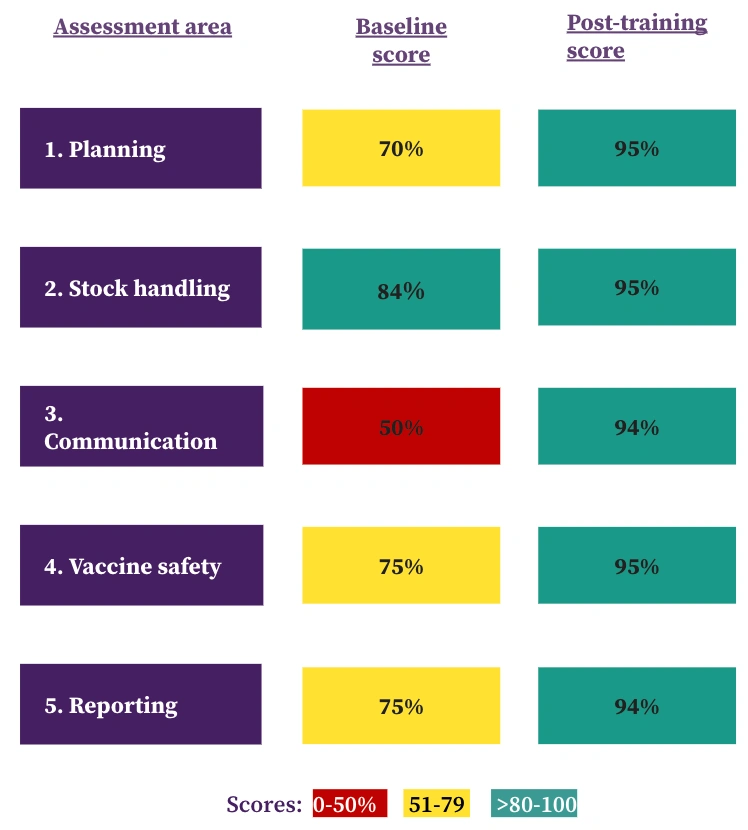
Some health workers understandably worry about technology further overburdening them. But if interventions are designed correctly, more overburdening does not need to happen.
Technology is being used to improve the effectiveness of training for health workers in developing countries. Apps, surveys and videos are leading to developments in knowledge, skill and communication for frontline workers.
Many health workers have not grown up using technology extensively, and so they often need help with navigating it. By addressing the concerns some health workers may have, the use of technology to support frontline workers can become far more extensive.
Training quality in developing countries
Across developing countries, there are undertrained vaccinators working on the immunisation front line. Training is often expensive, leading to limited training opportunities. Even where training is in place, it is sometimes infrequently delivered, and does not follow modern theories of adult learning, meaning its long-term effectiveness is reduced.
Limiting the effectiveness of training means frontline workers are not as equipped to do their jobs as they could be. This is even more important where vaccinator churn rates are high, which they can be in developing countries. Losses of trained vaccinators make it imperative that new hires are trained properly.
Technology to support health workers
Ethiopia is one country where we have helped the government implement technology to improve the effectiveness of training for health workers. With input from the Ministry of Health, we developed training content intended to support frontline workers in Addis Ababa.
We partnered with Immunization Academy to use an app that delivered training content for vaccinators in the form of short videos focusing on key capacity areas, such as planning, stock handling, communication, vaccine safety and reporting.
After watching training videos, vaccinators completed quizzes to show their overall understanding of lessons learned. Supervisors also used an automated dashboard to track vaccinator app use and progress.
After completing all six modules, vaccinator competencies greatly improved across all areas, compared to baseline levels. As a result, the Federal Ministry of Health is looking to to integrate the approach as part of its strategy to improve vaccinator capacity.
Source: Change in correct responses given against capacity questions before and after app use; sample size is 50
Support for less confident technology users
Technology may be improving the effectiveness of training for those who use it, but others understandably have concerns. In some developing countries, vaccinators may not have grown up using technology, and are not confident using the apps provided.
In one location where we work, some health workers were not confident using the apps intended to assist their training. As a solution, we assigned coaching buddies to work with them as they undertook training programmes. This meant that a health worker who was confident using technology was assigned to train alongside someone less confident as they both trained. The model proved highly scalable.
As a result, the majority of health workers became confident in using the apps by the end of their training programme. This cooperation will be pivotal in scaling the use of technology for more sceptical health workers moving forwards.
How can technology be used to support frontline workers?
Despite understandable anxieties that some health workers have surrounding the use of technology for their training, there are solutions. Assigning experienced technology users to help coach them during their training programmes is one way to build confidence.
Limited resources across many developing countries makes it difficult to fund regular training, meaning innovative solutions through the use of technology can be pivotal for improving the effectiveness of training.



